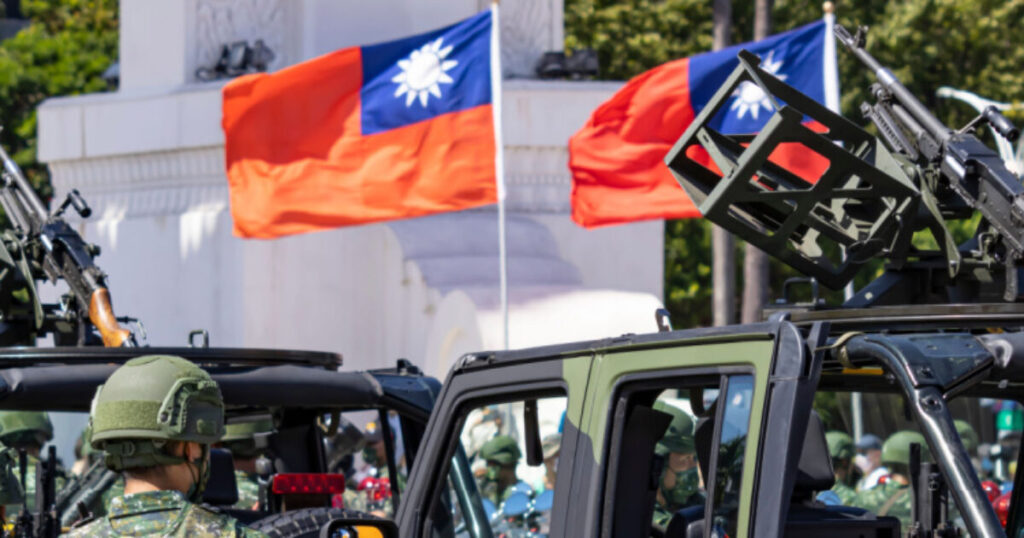The evolving geopolitical landscape reveals a stark reality regarding Taiwan and its strategic importance to U.S. national security. Despite the escalating threats posed by the People’s Republic of China (PRC), which aims to supplant the United States as the leading global power by potentially provoking a conflict by 2027, the Biden administration has notably focused its support on Ukraine. Recently, President Biden allocated an additional $2.4 billion to Ukraine while designating a modest $567 million in immediate security aid to Taiwan. This disparity raises concerns, especially considering that Taiwan stands at the forefront of the potential U.S.-China conflict, thus necessitating a reevaluation of American priorities in the Indo-Pacific region. While the efforts to prevent Russia from asserting control over Ukraine are valid, the situation surrounding Taiwan is markedly different, as it presents an unprecedented challenge that could destabilize global supply chains and diminish U.S. influence.
Taiwan is crucial not only because of its democratic values but also due to its pivotal role in semiconductor production—the lifeblood of many industries, including defense. The island’s strategic location in the Indo-Pacific is central to maintaining a U.S. presence in the region, which further complicates the dynamics of global security. As tensions increase, particularly following the election of pro-independence candidate Lai Ching-te as Taiwan’s president, China has significantly escalated its military provocations. The PRC has executed hundreds of incursions into Taiwan’s Air Defense Identification Zone (ADIZ) and sent vessels into Taiwan’s territorial waters, aimed at establishing dominance over the region and testing Taiwan’s military response capabilities. Such aggressive maneuvers not only stretch Taiwanese defenses but also pose a direct challenge to the U.S.’s commitment to protect its allies and uphold international norms.
Moreover, the U.S. military and intelligence communities have issued stern warnings of a potential imminent conflict with China. While American allies in Europe appear preoccupied with the Russian threat, the undercurrent of destabilization in the Indo-Pacific could have severe ramifications for Europe’s own security. A conflict over Taiwan could force the U.S. to shift its military focus away from Europe, thereby jeopardizing collective security arrangements and leaving European nations more vulnerable. In this context, the ongoing military operations by the People’s Liberation Army (PLA), coupled with rising nationalist sentiments and rhetoric from Chinese leadership, underscore the urgency for the U.S. to recalibrate its defense strategies towards Taiwan.
Taiwan’s proactive measures through its Han Kuang military exercises highlight the island’s commitment to national defense. These exercises involve not only the military but the civilian population, reflecting a societal-wide dedication to preparedness for potential Chinese aggression. Each year, Taiwan’s armed forces simulate various scenarios, encompassing air, sea, and ground operations, while also fortifying cybersecurity and critical infrastructure. In light of these drills, Taiwan has expressed a commitment to strengthening military cooperation with the U.S. through arms sales and intelligence sharing, contrasting sharply with the recent military retrenchment observed in European nations. Unlike Europe, which has been slow to increase military budgets in response to the Ukraine crisis, Taiwan is extending its conscription period as part of its strategy to ensure resilience against the growing threat from China.
Chinese leaders have not only increased military pressure but have also engaged in a war of words, warning against Taiwanese independence. Xi Jinping’s recent speeches emphasize a hardline stance against perceived separatism, framing Taiwan as an integral part of Chinese sovereignty. This narrative is further complicated by regional dynamics, as allies like Japan and Australia have begun to provide limited support to Taiwan, drawing ire from Beijing. The geopolitical stakes are incredibly high, as the Taiwan Strait serves as a pivotal maritime corridor influencing global trade. The disruptions in this region could have cascading effects on international supply chains and economic stability, particularly for European nations reliant on Taiwanese semiconductors.
In conclusion, the U.S. and its allies face a critical juncture regarding Taiwan, which is emerging as a likely flashpoint for global conflict. Despite the ongoing war in Ukraine capturing much of the U.S. attention and resources, Taiwan’s ability to defend itself against Chinese encroachment is vital for maintaining not only American interests but also global stability. The contrast between U.S. support for Ukraine and Taiwan reveals an imbalance that could have far-reaching consequences. As European nations continue to outsource their security arrangements to the U.S. while still perceiving Russia as the primary threat, the necessity for a more robust and proactive defense strategy regarding Taiwan is paramount. Investing in Taiwan’s defense through increased aid and cooperation not only serves American interests but also reinforces the framework of international security in the face of rising authoritarianism.

